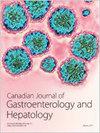Ghrelin/GHSR Axis Induced M2 Macrophage and Alleviated Intestinal Barrier Dysfunction in a Sepsis Rat Model by Inactivating E2F1/NF-κB Signaling
IF 2.3
4区 医学
Q2 Medicine
引用次数: 0
Abstract
Sepsis is an inflammatory reaction disorder state that is induced by infection. The activation and regulation of the immune system play an essential role in the development of sepsis. Our previous studies have shown that ghrelin ameliorates intestinal dysfunction in sepsis. Very little is known about the mechanism of ghrelin and its receptor (GHSR) on the intestinal barrier and the immune function of macrophage regulation. Our research is to investigate the regulatory effect and molecular mechanism of the ghrelin/GHSR axis on intestinal dysfunction and macrophage polarization in septic rats. A rat model of sepsis was established by cecal ligation and puncture (CLP) operation. Then, the sepsis rats were treated with a ghrelin receptor agonist (TZP-101) or ghrelin inhibitor (obestatin). The results suggested that TZP-101 further enhanced ghrelin and GHSR expressions in the colon and spleen of septic rats and obestatin showed the opposite results. Ghrelin/GHSR axis ameliorated colonic structural destruction and intestinal epithelial tight junction injury in septic rats. In addition, the ghrelin/GHSR axis promoted M2-type polarization of macrophages, which was characterized by the decreases of IL-1β, IL-6, and TNF-α, as well as the increase of IL-10. Mechanistically, the ghrelin/GHSR axis promoted E2F2 expression and suppressed the activation of the NF-κB signaling pathway in septic rats. Collectively, targeting ghrelin/GHSR during sepsis may represent a novel therapeutic approach for the treatment of intestinal barrier injury.胃泌素/GHSR轴通过激活E2F1/NF-κB信号诱导M2巨噬细胞并缓解败血症大鼠模型的肠屏障功能障碍
败血症是一种由感染诱发的炎症反应紊乱状态。免疫系统的激活和调节在败血症的发生发展中起着至关重要的作用。我们之前的研究表明,胃泌素能改善败血症患者的肠道功能障碍。关于胃泌素及其受体(GHSR)对肠道屏障和巨噬细胞免疫功能的调节机制,目前所知甚少。我们的研究旨在探讨胃泌素/GHSR轴对脓毒症大鼠肠道功能障碍和巨噬细胞极化的调节作用及其分子机制。通过盲肠结扎术(CLP)建立了败血症大鼠模型。然后,用胃泌素受体激动剂(TZP-101)或胃泌素抑制剂(obestatin)治疗败血症大鼠。结果表明,TZP-101能进一步增强败血症大鼠结肠和脾脏中胃泌素和GHSR的表达,而obestatin则显示出相反的结果。Ghrelin/GHSR 轴可改善败血症大鼠结肠结构破坏和肠上皮紧密连接损伤。此外,胃泌素/GHSR 轴促进了巨噬细胞的 M2 型极化,其特征是 IL-1β、IL-6 和 TNF-α 的下降以及 IL-10 的增加。从机理上讲,胃泌素/GHSR 轴促进了 E2F2 的表达,并抑制了败血症大鼠 NF-κB 信号通路的激活。总而言之,在脓毒症期间靶向胃泌素/GHSR可能是治疗肠屏障损伤的一种新的治疗方法。
本文章由计算机程序翻译,如有差异,请以英文原文为准。
求助全文
约1分钟内获得全文
求助全文
来源期刊

Canadian Journal of Gastroenterology and Hepatology
GASTROENTEROLOGY & HEPATOLOGY-
CiteScore
4.80
自引率
0.00%
发文量
0
审稿时长
37 weeks
期刊介绍:
Canadian Journal of Gastroenterology and Hepatology is a peer-reviewed, open access journal that publishes original research articles, review articles, and clinical studies in all areas of gastroenterology and liver disease - medicine and surgery.
The Canadian Journal of Gastroenterology and Hepatology is sponsored by the Canadian Association of Gastroenterology and the Canadian Association for the Study of the Liver.
 求助内容:
求助内容: 应助结果提醒方式:
应助结果提醒方式:


